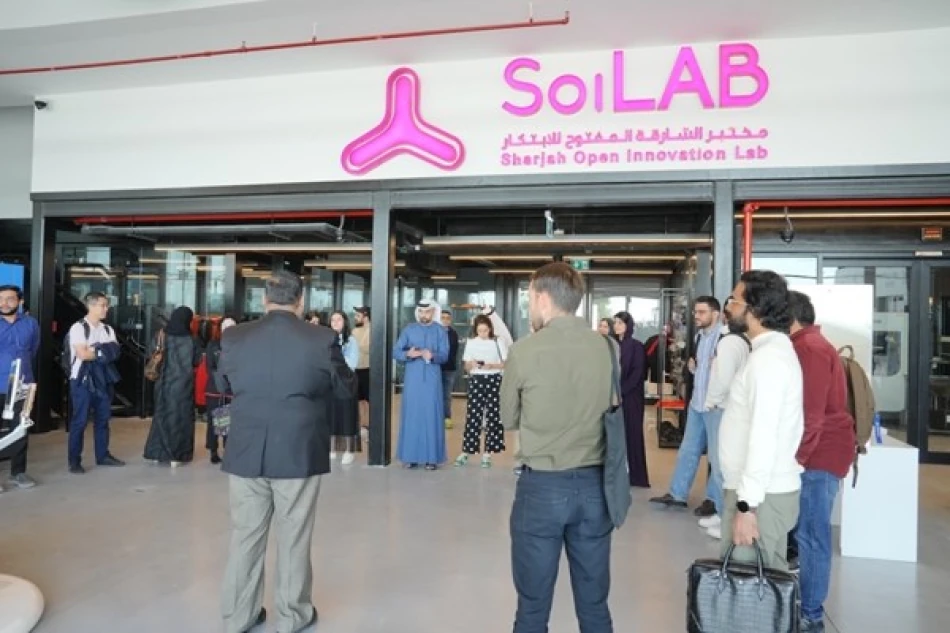
Sail Unveils Sharjah Startup Studio's Refreshed Edition for Aspiring Entrepreneurs
Sharjah Launches Major Startup Accelerator with $816,000 Software Package to Rival Dubai's Dominance
The Sharjah Entrepreneurship Center (Sheraa) has opened applications for its ambitious Sharjah Startup Studio (S3) program, offering a comprehensive four-month acceleration journey worth over $816,000 in software tools and expert mentorship. With applications closing September 7th and over 2,300 startups already applying for 2024, the initiative signals Sharjah's aggressive push to establish itself as a major entrepreneurship hub alongside Dubai and Abu Dhabi in the UAE's competitive startup ecosystem.
The Program's Strategic Focus Areas
S3 targets four key sectors that align with global investment trends and the UAE's economic diversification goals: educational technology, sustainability, advanced manufacturing, and creative industries. This strategic focus mirrors similar accelerator programs in Singapore and Israel, where governments have successfully leveraged targeted sector support to build innovation clusters.
The program's emphasis on sustainability and advanced manufacturing particularly reflects the UAE's broader Vision 2071 initiative, which aims to make the country the world's best by its centennial. By focusing on these sectors, Sharjah positions itself to capture the growing ESG investment wave and the reshoring of manufacturing closer to consumer markets.
Market Positioning and Regional Competition
Challenging Dubai's Startup Supremacy
Sharjah's move comes as regional competition for startup talent intensifies. Dubai has long dominated the UAE's entrepreneurship landscape with initiatives like Dubai Future Accelerators and the Dubai International Financial Centre's FinTech Hive. However, Sharjah's approach offers something different: a more focused, sector-specific program with substantial software resources that many early-stage companies struggle to afford independently.
The 3 million dirham ($816,000) software package represents a significant value proposition. For comparison, similar accelerators in the region typically offer $25,000-$100,000 in cloud credits and basic tools. This substantial investment suggests Sharjah is serious about attracting high-quality startups that might otherwise gravitate toward Dubai or Abu Dhabi.
Investor and Market Implications
The program's structure—connecting startups directly with investors and partners—addresses a critical gap in the Middle East's startup ecosystem. Unlike Silicon Valley or London, where venture capital networks are well-established, the Gulf region still relies heavily on government-backed initiatives to facilitate investor-startup connections.
For investors, S3 represents a curated pipeline of vetted startups in high-growth sectors. The four-month program duration allows sufficient time for meaningful business model development while being short enough to maintain momentum—a lesson learned from longer accelerator programs that often see participant engagement decline over time.
Economic Strategy Behind the Initiative
Sarah Al Naimi, Sheraa's CEO, positioned the program as part of Sharjah's broader economic diversification strategy. This aligns with the emirate's historical focus on culture, education, and sustainable development—areas where it has successfully differentiated itself from its more commercially-focused neighbors.
The timing is strategic. As global venture funding contracted by 35% in 2023 according to PitchBook data, government-backed accelerators have become increasingly important for startup survival. Sharjah's entry into this space with substantial resources could attract startups struggling to secure private funding in the current environment.
Global Context and Success Factors
S3's model resembles successful government-backed accelerators like Startup Chile and Enterprise Singapore's programs, which have generated significant economic returns by attracting international talent and fostering local innovation ecosystems. The key differentiator will be execution and the quality of mentorship networks.
The program's success will largely depend on its ability to generate tangible outcomes—successful exits, follow-on funding rounds, and job creation. With 20 startups selected per cohort and applications already exceeding 2,300, the selectivity ratio suggests strong market interest, but the real test will be graduate performance over the next 2-3 years.
For the broader UAE startup ecosystem, S3 represents healthy inter-emirate competition that should ultimately benefit entrepreneurs through improved programs, better funding access, and more diverse opportunities across different business sectors and stages.
Most Viewed News

 Layla Al Mansoori
Layla Al Mansoori






